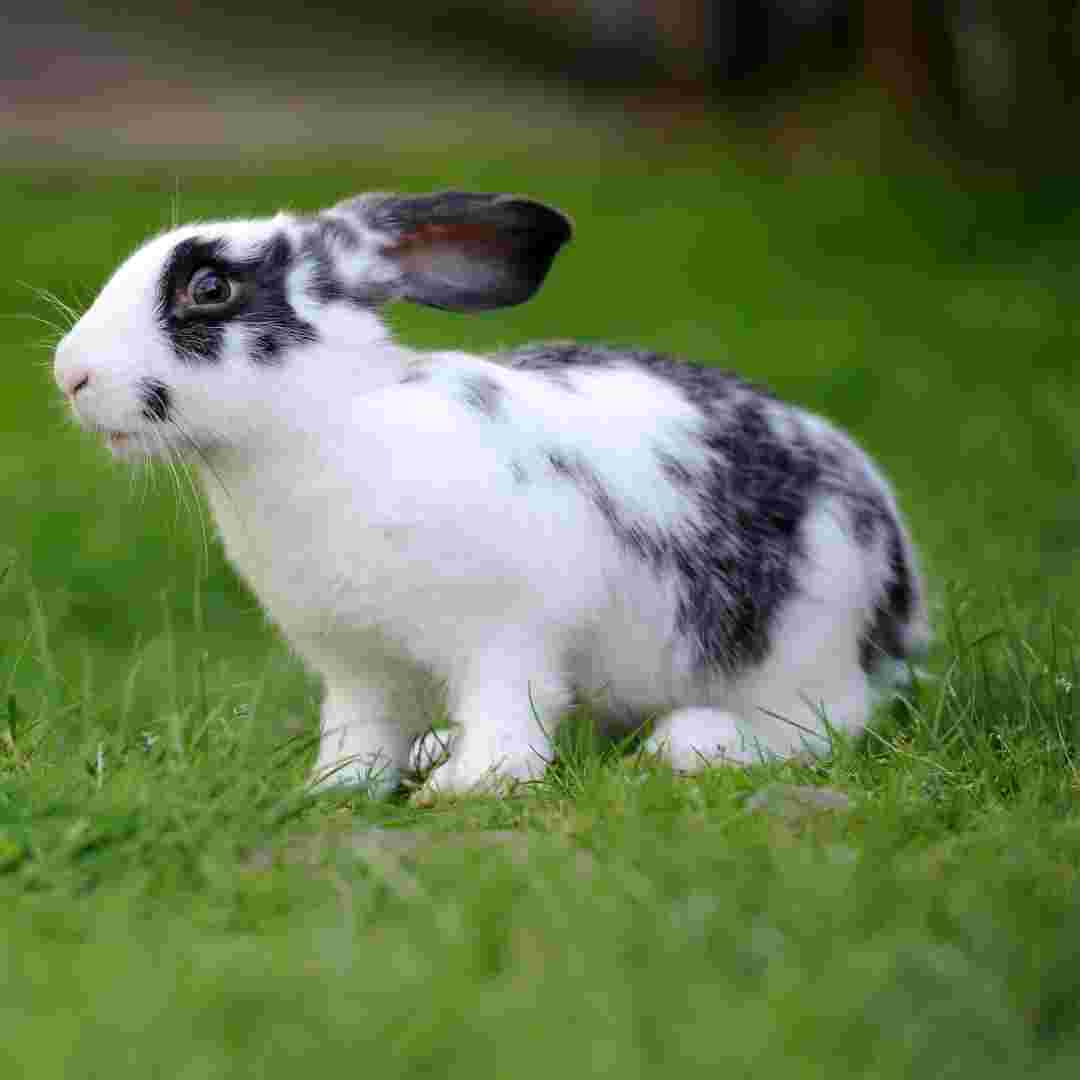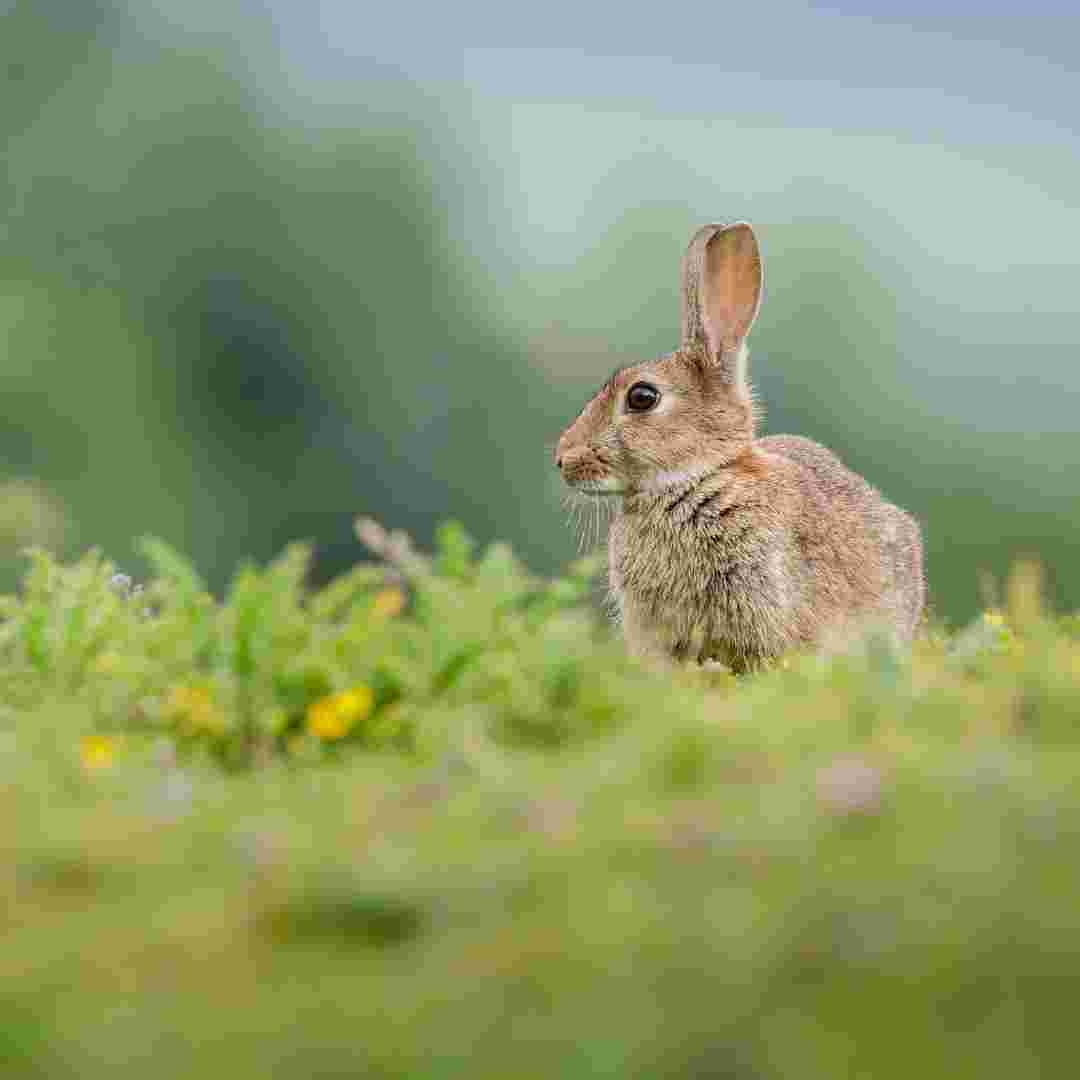Contents Table
Introduction
Diet in Rabbit Weight Loss
Common rabbit parasites that cause weight loss
Effects of Stress on Rabbit Weight Loss
How Exercise Maintains Rabbit Weight
Age Effects on Rabbit Weight Loss
Q&A
Conclusion
Introduction
Rabbits are naturally slender but can lose weight for many reasons. Rabbits lose weight due to poor food, parasites, dental issues, stress, and sickness. To care for your rabbit properly, you must determine the cause of weight loss. Your rabbit can grow weight with regular feeding, medical care, and a stress-free environment.
Diet in Rabbit Weight Loss
Healthy weight in rabbits requires good diet. Rabbits can lose weight healthily on a low-calorie, high-fiber diet.
Diets should be high in fibre and low in calories for rabbits. Hay should be their main food, with fresh vegetables and pellets as a supplement. Rabbits should always have hay to support their digestive systems and get critical nutrients. Due to their sugar content, fresh vegetables should be fed in limited amounts to avoid weight gain. Pellets are high in calories and can cause weight gain, so offer them sparingly.
Rabbits need lots of exercise. This boosts metabolism and burns calories. Stress can cause overeating, but exercise can reduce it.
To avoid weight growth or loss, rabbits should be monitored routinely. A rabbit losing too much weight should eat more and exercise less. Reduce calorie intake and boost activity if a rabbit is gaining weight.
In conclusion, rabbits need a low-calorie, high-fiber diet to reduce weight safely. Burning calories and reducing stress are further benefits of exercise. To avoid weight growth or loss, rabbits should be monitored routinely. Rabbits may stay fit with proper diet and activity.
Common rabbit parasites that cause weight loss
Many parasites can induce weight loss in rabbits. The most frequent parasites that cause rabbit weight loss are coccidia, tapeworms, and pinworms.
Rabbit intestines contain microscopic parasites called coccidia. Stool, food, and water contamination spreads them. Weight loss, diarrhoea, and anaemia are coccidiosis symptoms. Treatment usually involves antibiotics and support.
Tapeworms infest rabbit intestines. They spread by contaminated food and water. Weight loss, anaemia, and diarrhoea are tapeworm symptoms. Dewormers are usually used.
Rabbits have intestinal pinworms. They spread by contaminated food and water. The symptoms of pinworm infestation are weight loss, anaemia, and diarrhoea. Dewormers are usually used.
These parasites can be avoided by keeping your rabbit clean and safe. Regular veterinarian and faecal exams can also discover and cure parasites.
Effects of Stress on Rabbit Weight Loss
Stress affects numerous animals, including rabbits. It can seriously affect their health and weight. This article discusses rabbit stress and weight loss and offers stress-reduction methods.
Stress can cause rabbit weight loss in many ways. They may eat less due to anxiety. Pacing or sprinting around might also burn extra calories. Stress can also make rabbits sick and lose weight.
Rabbit stress can be reduced in numerous ways. First, establish a secure and comfortable workplace. There should be enough space, a clean and secure cage, and toys and activities to keep them entertained. A healthy diet and frequent exercise are also vital. Finally, handle them gently and avoid startling them with loud noises or sudden movements.
In conclusion, stress can significantly affect rabbit weight loss. Reducing rabbit stress is crucial to their health. You can alleviate stress and keep children healthy by providing a safe and pleasant environment, a good food, and regular exercise.
How Exercise Maintains Rabbit Weight
Weight management for rabbits requires exercise. Regular exercise keeps rabbits fit and prevents obesity. Providing rabbits with plenty of space to move and explore will keep them active and engaged.
A spacious, protected enclosure with free movement is ideal for rabbits. There should be enough of toys and activities to keep them engaged. Rabbits should also have a secure run or garden to explore and exercise. This will keep them active and cognitively stimulated.
To keep rabbits entertained and active, provide a range of toys and activities. They can play with tunnels, boxes, and other stuff. Giving them a variety of chew toys will help maintain their teeth healthy and prevent overgrowth.
In addition to a safe and engaging environment, rabbits need a healthy food. This should include fresh veggies, hay, and a few pellets. Overeating can cause obesity, so avoid it.
Finally, rabbits need regular vet visits. This will detect health risks and offer the best care.
Exercise helps rabbits maintain a healthy weight. A safe, engaging environment and a balanced food are essential. Rabbits need regular vet visits to get the finest treatment.
Age Effects on Rabbit Weight Loss
Age affects rabbit weight loss. Rabbits' metabolism decreases with age, making weight maintenance harder. Activity may decrease in older rabbits, contributing to weight loss.
Older rabbits need a balanced, high-fiber, low-fat diet to avoid weight loss. Additionally, giving them plenty of activity helps boost their metabolism and prevent weight loss.
Elderly rabbits should also be constantly monitored for weight. If a rabbit loses weight, take it to the doctor to rule out medical issues. The vet may provide advise on how to regulate the rabbit's nutrition and exercise to prevent weight loss.
In conclusion, rabbit age affects weight loss. To avoid weight loss, senior rabbits need a balanced diet and lots of exercise. Also, watch their weight and take them to the vet if they lose weight.

Q&A
1. What are frequent rabbit weight loss causes?
Rabbits lose weight due to dental, gastrointestinal, parasite, nutritional, and stress issues.
2. How can I tell my rabbit is losing weight?
Feeling your rabbit's ribs and spine can indicate weight loss. Weight loss may be indicated by easier rib and spine palpation.
3. If my rabbit is losing weight, what should I do?
If your rabbit seems to be losing weight, take it to the vet. The vet can diagnose and treat weight loss.
4. What diet should I feed my rabbit to acquire weight?
Rabbits need less sugar and fat and more fibre. Your rabbit needs fresh hay and vegetables too.
5. What vitamins may I offer my rabbit to increase weight?
Weight-gaining vitamins are available for rabbits. These supplements normally contain vitamins, minerals, and other components for healthy weight gain.
Conclusion
In conclusion, bad diet, lack of activity, disease, parasites, and stress can cause rabbit weight loss. If you detect any severe changes in your rabbit's weight or health, visit a vet. Nutrition, activity, and veterinarian care help keep rabbits healthy and at a healthy weight.
